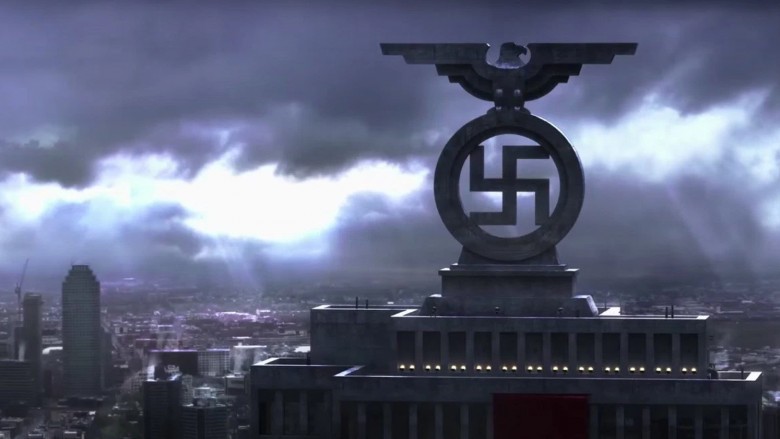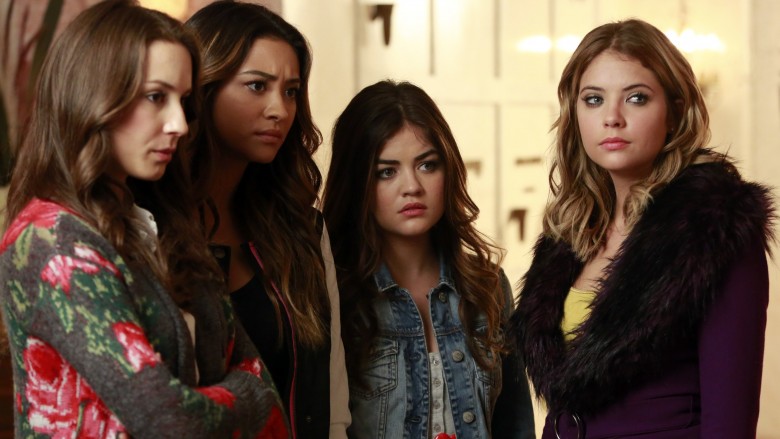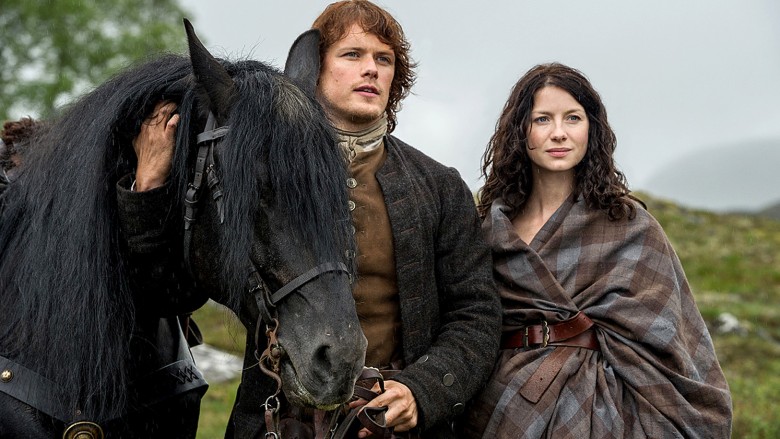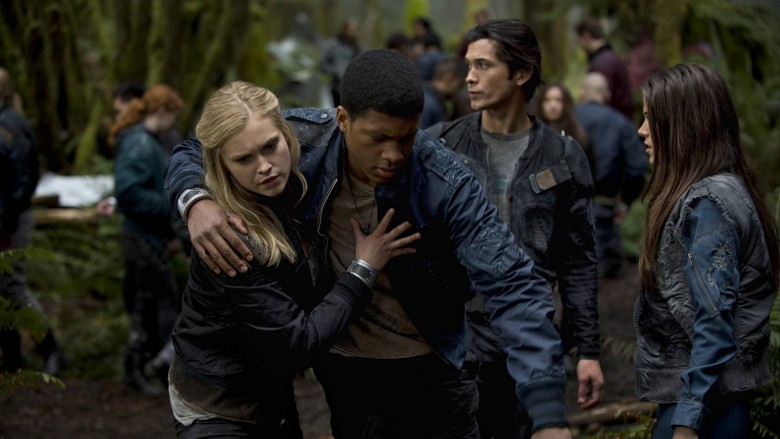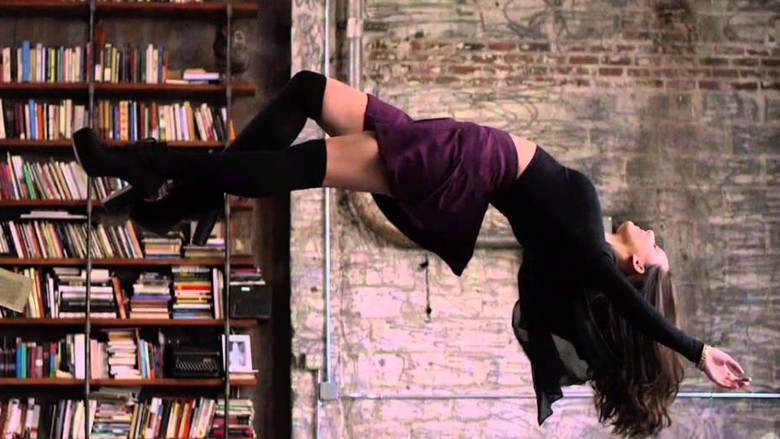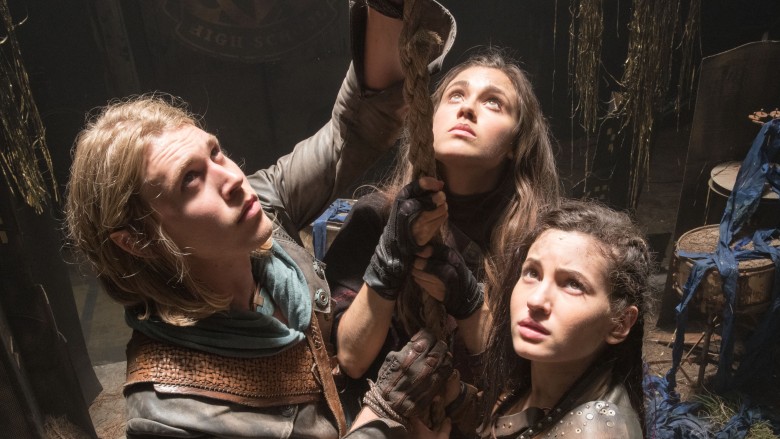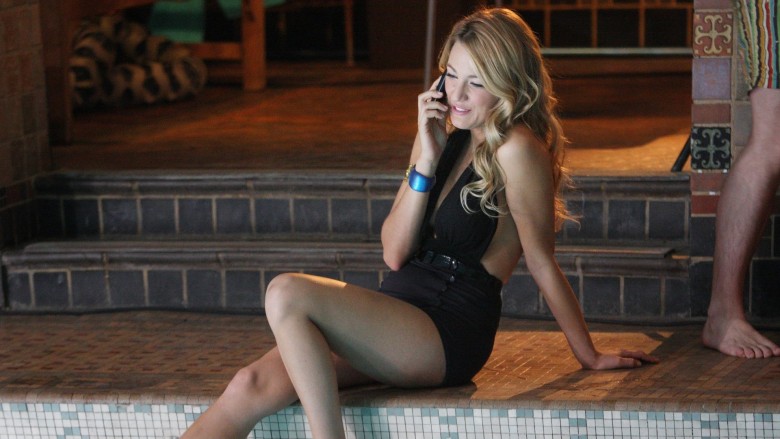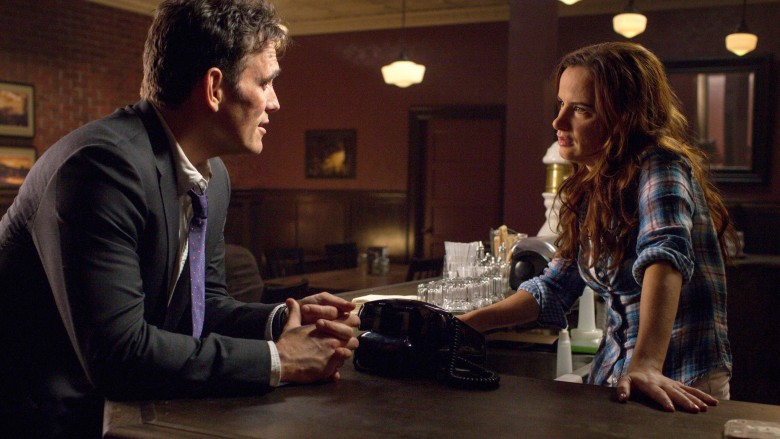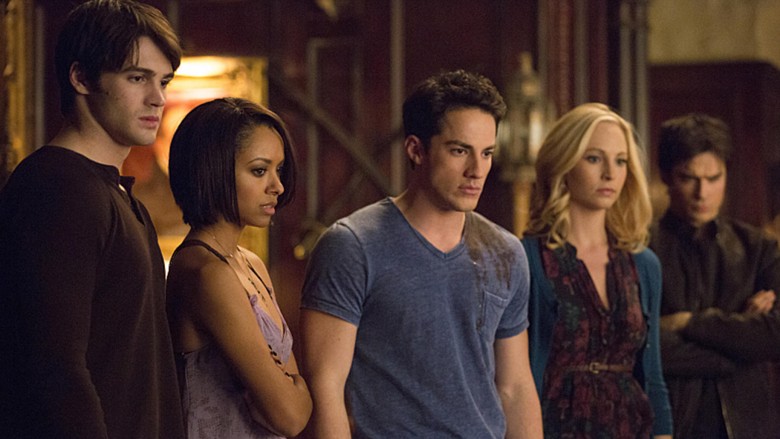TV Shows That Ignored The Books They Were Based On
Television adaptations of books are a tricky business—there's a fine line that producers and writers need to walk in order to make their series accessible for new fans while keeping the readers of the original books happy. If you go too far into the realm of book fan service, the pacing can slow and things get too convoluted for viewers. If you strike out on your own and only loosely base your series on the original books, you run the risk of alienating readers or letting the show run off the rails. On occasion, the changes made for a TV series add to the story and increase viewer immersion—but they can also ruin otherwise promising material. Let's take a look at some of the TV shows that ignored major parts of their source material—for better and for worse.
Game of Thrones
It's one of the hottest shows on television, and perhaps that popularity is why zealous readers of George R.R. Martin's A Song of Ice and Fire series take every opportunity to point out how far Game of Thrones has strayed from the books. Despite their occasionally irate responses to each new episode, the book readers do have a bit of a point. The changes were small and subtle at first, but in later seasons the showrunners have taken quite a bit of liberty with their source material.
While some of these differences make sense—like aging up the younger characters to avoid creepy adolescent sex scenes—others just seem like copouts. Numerous characters are prematurely killed off on the show or simply don't exist at all. The absence of Lady Stoneheart still makes some fans unreasonably angry—as does the entire Dorne plot following Oberyn's death. With Game of Thrones now well ahead of the available written material, it's only a matter of time before the show diverges even further from the books. And judging by the spoilers we've seen for season seven, things are about to get crazy. We'll still watch every moment on the edge of our seats, though.
Man in the High Castle
If there's one thing you can be sure of with a Phillip K. Dick novel, it's that it will usually end up as a pretty good show or movie, and Man in the High Castle is no exception. Both the book and the television series are pretty great, but that doesn't mean they are all that similar. As director Ridley Scott explained to Entertainment Weekly, "It's a hell of a book to break down. There are about 19 stories in the first 20 pages. How do you make that work?" As it turns out, you make sweeping changes that can drive a multi-season television show while still capturing the spirit of the original material.
The show focuses more on New York City as a center of action, which makes sense—and makes for some stunning visuals, such as Times Square emblazoned with swastikas. Additionally, the show added some much-needed antagonists to represent the Nazi side of things, such as Chief Inspector Kido and Obergruppenfuhrer John Smith. Finally, the whole personal relationship between Juliana and the film was largely invented for the show; in the books she never had a sister, but we feel the motivation to finish what her sister started is more powerful, and was an excellent choice.
Pretty Little Liars
If there's one thing Pretty Little Liars gets right, it's characterization. The show is so popular precisely because it gives us multidimensional characters who have flaws and their own motivations, just like us. Additionally, the show's writers have done a good job of knowing when to throw out the book's plot when necessary.
For example, in the books, Toby has a brief relationship with Emily, molested his sister when they were younger, and dies of an overdose in the first novel. He never dates Spencer. Could you imagine the show without Toby and Spencer's complicated relationship? In addition, in the books there's a whole "secret twin" plot happening with Alison, which was scrapped for the show. That's not to say that the books aren't entertaining, but we're glad that for the show, the writers decided to keep things simpler.
Outlander
For the most part, the first season of the time-travel romance drama Outlander stayed faithful to the hit book series by Diana Gabaldon. Naturally, a television series has to condense story for the sake of time, and for Gabaldon's readers, the world of the show may not feel as richly detailed as the books. In particular, the relationship between Jaime and Claire doesn't feel as fully developed.
In season two, the show diverges further from the books—starting with the opening scene of the premiere. As Gabaldon explained to E! News, the beginning of her second book, Dragonfly in Amber, wouldn't have translated well to television. "The book was a son of a bitch to write...I said, I have no idea how to film that." She went on to advise the show's producer Ronald D. Moore, "If I were you, I would just cut off the framing story and you go straight from the middle of the book...So that's why it starts at a different point. The framing story is still in there, but it's not going to be where you expect to see it." Considering how well-received season two of Outlander was, we think the change was worth it. The show may decide to take some detours along the way from Point A to Point B, but it manages to end up in the same place—and that's what matters.
Dexter
There were many differences between Dexter the show and the books written by Jeff Lindsay. Dexter's personality differs from the books, and there's one quirk in particular we wish had made it into the show: Dexter starts to wonder if he may be the Ice Truck Killer (called the Tamiami Butcher in the novel), possibly murdering people while in a fugue state and not remembering it later.
Other changes made from the books were positive, like giving Angel Batista a larger backstory and role to play, whereas in the books we know little about him besides his name. Additionally, while Dexter kills the Ice Truck Killer at the end of the first season, in the books the character survives and continues to pop up and cause further problems down the line, which probably would have been an unnecessary complication for the show.
The 100
As for the CW's drama The 100, set 100 years after a nuclear armageddon, we actually prefer the show over the novels. In fact, some of the plot elements invented for TV are our favorite parts. The book series by Kass Morgan is good, but it occasionally gets a little too obsessed with the dystopian tropes we see in nearly every young adult novel of this genre. But the show's production has wisely decided to abandon most of them for something deeper. The focus on romantic relationships in the books has been mostly ignored for the television series, in favor of a more moral tale of human nature and survival in near-impossible circumstances.
The Magicians
Syfy's adaptation of Lev Grossman's Magicians trilogy did a pretty good job of walking the fine line between honoring the books while also carving its own path. Notably, the cast has been aged up dramatically, which was almost a necessity—the books follow Quentin and the rest of the characters all the way from high school to life well in their 30s. Understandably, it can be hard to find an actor who can play both 17 and 35 years old convincingly, and cast changes from one season to the next can be jarring unless you're showing a childhood flashback. At the same time, this raises some issues for Quentin's motivations if you're a fan of the books—his obsession with fantasy makes sense in the books because he's still little more than a child himself.
Additionally, the fantasy world of Fillory appears early on in the show, while the books don't reveal all of Fillory's secrets so early. Although TV shows are typically faster-paced than books, it does kind of spoil the magic of Fillory to have it all laid out for viewers so quickly.
Shannara Chronicles
The Shannara books by Terry Brooks aren't particularly great, or original (borrowing heavily from Tolkien), but they're still a fun bit of campy fantasy to pass the time. While MTV's adaptation The Shannara Chronicles has a lot going for it—like the budget, effects and acting—they've made some major changes to the novels that can take things from campy to cringey. The dialogue doesn't even pretend to come from a fantasy setting; in one moment a character will be talking about the lore of the world, and in the next breath complaining about not wanting someone's "sloppy seconds." Yes, really.
Also, the show adds many more references to modern human culture than can be found in the books, which is jarring and often ruins the setting. Case in point: Utopia and the use of guns. In trying so earnestly to appeal to a younger audience with Shannara, MTV risks writing this series into the ground. As it's been renewed for a second season, we'll see if the producers can learn from their mistakes and walk things back a bit.
Gossip Girl
For several years, Gossip Girl ruled the airwaves as TV's top teen-geared melodrama—and for good reason. The writing was spot on, witty, and self-aware. Much of that is due to the excellent source material—the novels written by Cecily von Ziegesar. But we also have to give plenty of credit to the CW writing team for the changes made from the books.
For the most part, we agree with these changes, like making Serena a more sympathetic character in the early seasons. That being said, Gossip Girl does suffer from the typical problem we have with CW shows: everyone is too beautiful and too clean-cut (yes, even Serena.) The show also fails to explore many of the darker elements of the books, which would have been great to see onscreen. We understand trying to appeal to a younger audience, but you have to be careful not to neuter the source material in the process.
Wayward Pines
We loved the first season of Wayward Pines. It managed to hit all the right creepy, horrifying and mind-bending notes and was relatively faithful to the books, with a few changes that make sense for television purposes—such as introducing us to the First Generation via orientation at Ben's school. There's just one major problem. Instead of sticking to the "one book per season" formula, FOX chose to cover the events of all three of Blake Crouch's existing Wayward Pines novels. They even billed the last episode of season one as the "series finale."
But unfortunately, great ratings resulted in FOX pulling the trigger on a new season. That meant that the writing team for the show was on its own starting with season two—and it was pretty obvious. Season two was nowhere as gripping or entertaining as the first, and some of the plot was downright ridiculous. The good news? We can still re-watch the first season and just pretend the second never happened.
The Vampire Diaries
Those of us who loved Buffy the Vampire Slayer found a natural successor in The Vampire Diaries, and not just because of the similar titles. Both shows were centered on a very human female protagonist, one struggling with her own failings and flaws. Many of the changes made from the books were positive or had little bearing on the overall plot—like Bonnie being descended from witches instead of druids—but there's a few glaring points where we wish the show's writers had been more faithful to the novels.
For example, in the books Elena doesn't have a teenage brother, but a four-year-old sister who she must help care for. This makes her a little less of a self-centered jerk, which would have been nice to see on the show. Additionally, the "ethical" Stefan who refuses to drink human blood on the show actually drinks Elena's in the books—which would have added another complicated layer to their relationship if it had been included.


